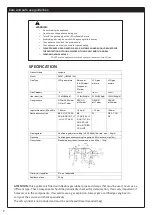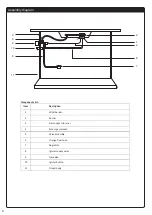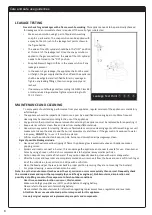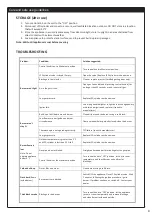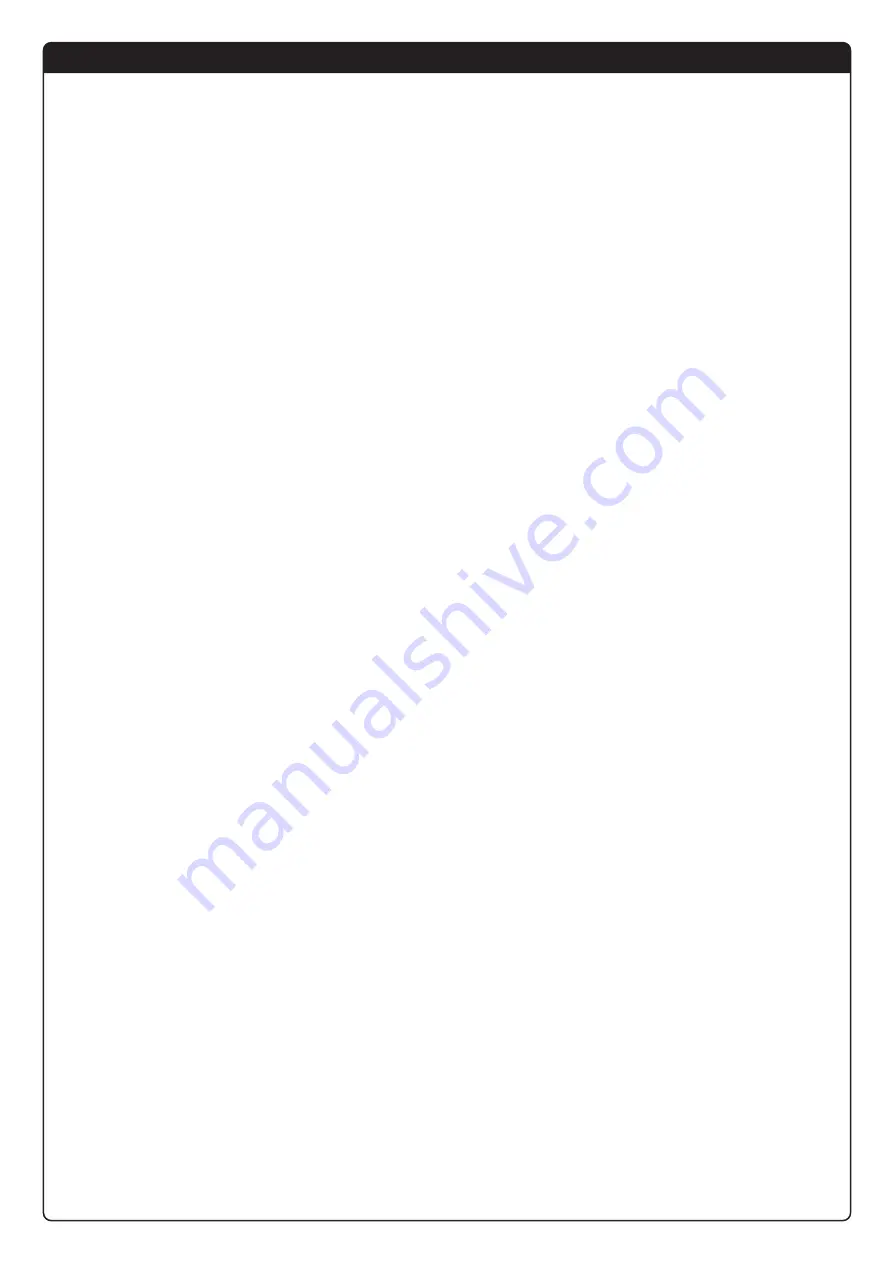
5
Care and safe use guidelines
LIQUID PROPANE GAS (LPG) WARNINGS
•
LPG is flammable and hazardous if handled improperly.
•
Propane Characteristics:
Propane is extremely flammable, explosive under pressure, heavier than air, and settles in pools in
low areas.
In its natural state, propane has no odour. For your safety, an odorant is typically added. Contact
with propane could burn the skin.
LPG WARNINGS:
•
Cylinders must be stored outdoors in a well-ventilated area out of reach of children.
•
Disconnected cylinders must have threaded valve plugs tightly installed and must not be in a building,
garage or any other enclosed area.
•
Never use an LPG cylinder with a damaged body, valve, collar, or footing.
•
Dented or rusted LPG cylinders may be hazardous and should be checked by your supplier prior to use.
•
The LPG cylinders should not be dropped or handled roughly.
•
LPG cylinders must be stored outdoors out of the reach of children. Do NOT store in a building, garage, or
any other enclosed area.
•
Never store your LPG cylinder where temperatures can reach over 50°C.
•
Do not store the LPG cylinder in direct sunlight or near a source of heat or combustion.
•
Never keep a filled LPG cylinder in a hot car. Heat will cause the gas pressure to increase, which may open
the relief valve and allow gas to escape.
•
Do not store a spare LPG cylinder under or near this appliance.
•
LPG cylinders should be filled only by a certified LPG dealer.
•
Never attempt to attach this appliance to the self-contained LPG system of a camper trailer, caravan, motor
home or house.
•
Always use the pressure regulator and hose assembly provided with the appliance to connect to a LPG
cylinder. Never connect to an unregulated LPG supply.
•
Hand turn the manual gas control valve. Never use tools. If the valve will not turn by hand, do not try to
repair it. Call a certified gas engineer. The use of force or any self-attempted repair may result in a fire or
explosion.
•
Use only the type of gas and the type of LPG cylinder specified by the manufacturer.
•
Appliance is fitted with gas regulator, flexible gas rubber pipe and clamps according the current regulations.
•
Care must be taken when handling the flexible gas rubber pipe, avoiding any twisting. Never use a damaged
gas regulator.
•
Never connect this appliance to an unregulated LPG source (gas regulator supplied mandatory).
•
When the appliance is not in use, turn the LPG cylinder to the “OFF” position.
•
Never use a damaged gas regulator.
•
Always perform a leakage test on gas connections whenever a LPG cylinder is connected. If bubbles form in
the leakage test solution, do not use it. Never use a flame to test for leakages. It is strictly forbidden and
dangerous!
•
•


